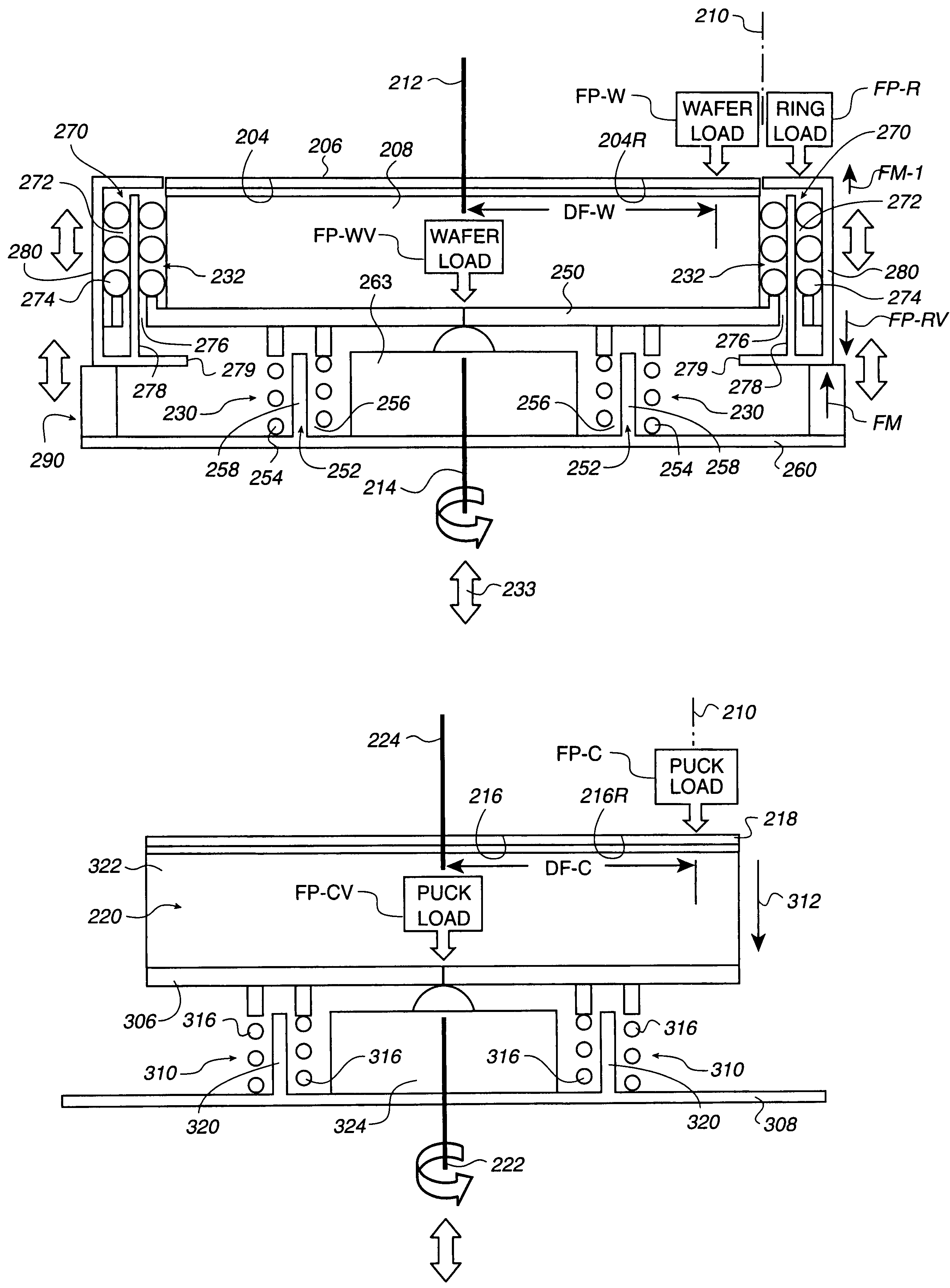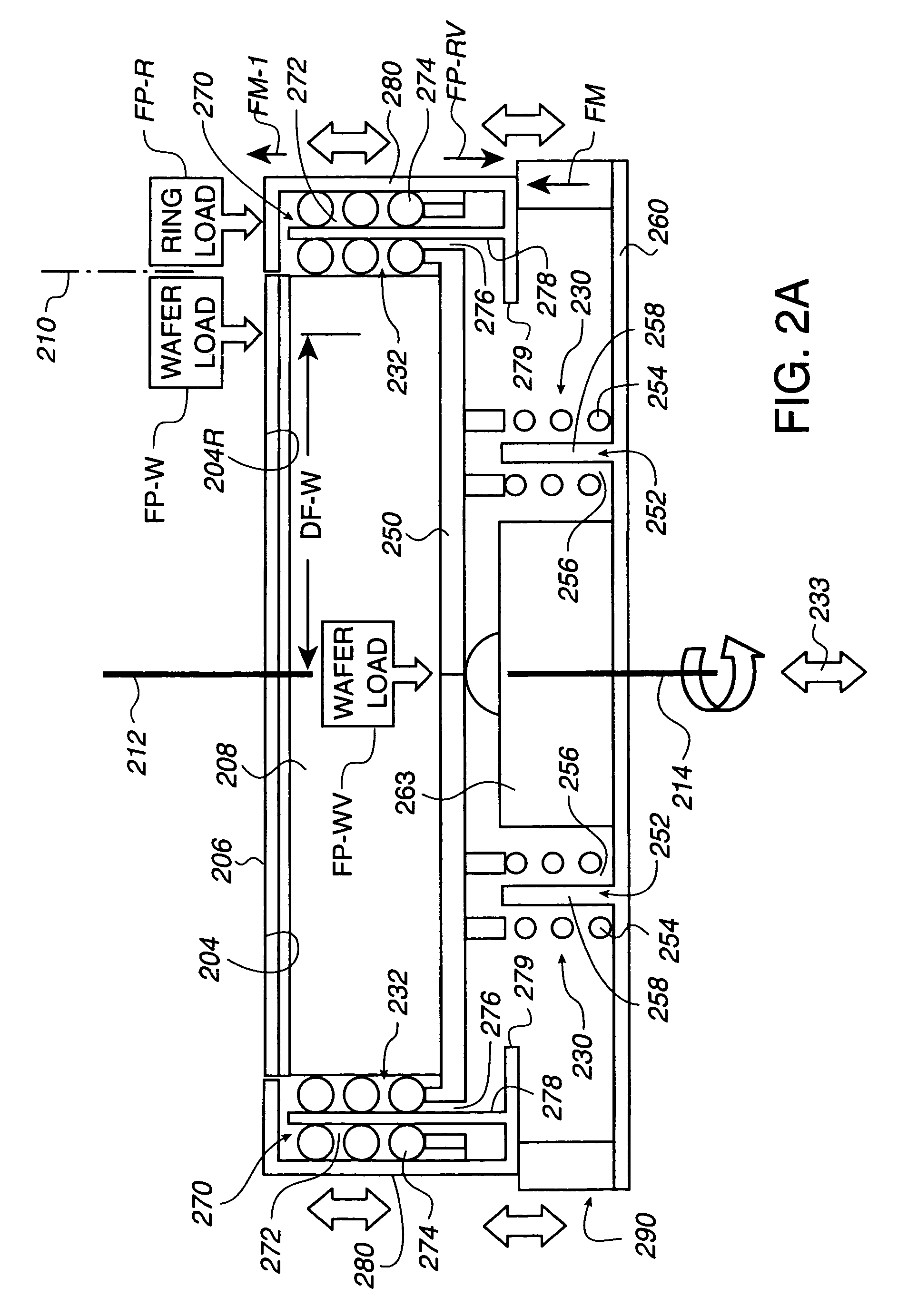Apparatus for controlling retaining ring and wafer head tilt for chemical mechanical polishing
a technology of mechanical polishing and retaining ring, which is applied in the direction of grinding drive, grinding drive, grinding surface conditioning device, etc., can solve the problems of wave-like shape producing non-uniform profiles on the exposed surface of the wafer, affecting the etc., to achieve accurate measurement and facilitate repeatability of eccentric force measurements
- Summary
- Abstract
- Description
- Claims
- Application Information
AI Technical Summary
Benefits of technology
Problems solved by technology
Method used
Image
Examples
Embodiment Construction
[0065]An invention is described for a CMP system, and methods, which enable precision controlled polishing of an exposed surface, which may include layer surfaces, of a wafer. The CMP system and methods substantially eliminate the aforementioned edge-effects, pad rebound effects, and edge burn-off effects, while structure and operations are provided that facilitate making repeatable measurements of the eccentric forces. In such CMP systems and methods, a force applied to a carrier, such as a wafer or puck carrier, may be accurately measured, as defined above, even though such force is eccentrically applied to such carrier. The CMP system and methods have the above-described repeatable measurement features, while providing facilities supplying fluids within a carrier to the wafer and a wafer support without interfering with the polishing operations. Similarly, the CMP system and methods remove fluids from the wafer or puck carrier without interfering with the CMP operations.
[0066]In ...
PUM
| Property | Measurement | Unit |
|---|---|---|
| diameter | aaaaa | aaaaa |
| diameter | aaaaa | aaaaa |
| angle | aaaaa | aaaaa |
Abstract
Description
Claims
Application Information
 Login to View More
Login to View More - R&D
- Intellectual Property
- Life Sciences
- Materials
- Tech Scout
- Unparalleled Data Quality
- Higher Quality Content
- 60% Fewer Hallucinations
Browse by: Latest US Patents, China's latest patents, Technical Efficacy Thesaurus, Application Domain, Technology Topic, Popular Technical Reports.
© 2025 PatSnap. All rights reserved.Legal|Privacy policy|Modern Slavery Act Transparency Statement|Sitemap|About US| Contact US: help@patsnap.com



